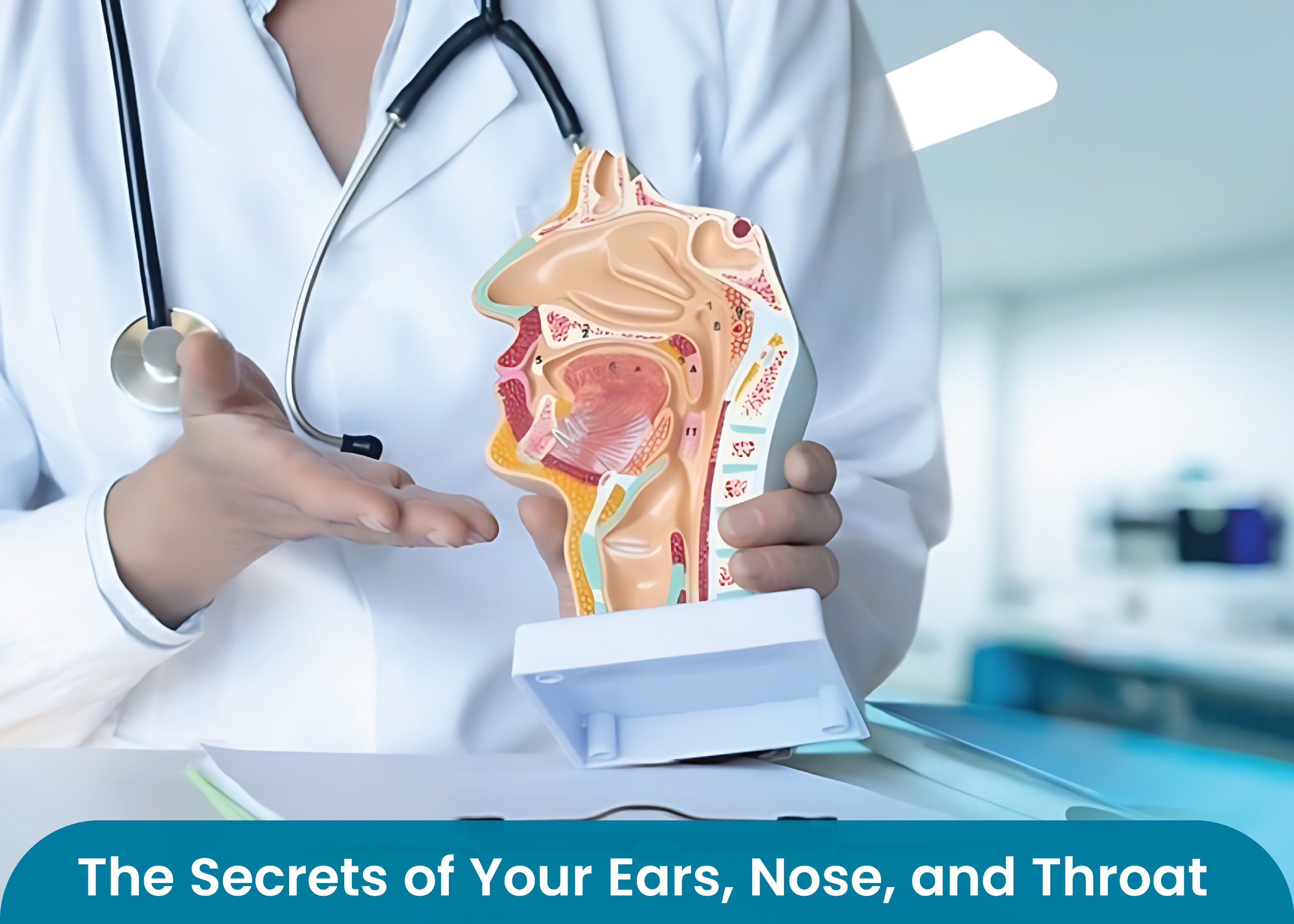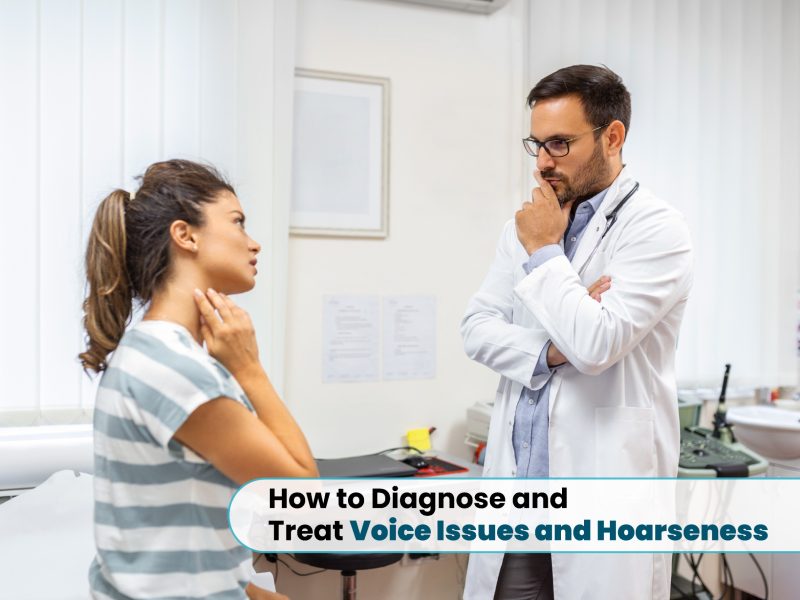The complex system of ears, nose, and throat plays a pivotal role in how we breathe, communicate, hear, and interact with the world. Despite being three distinct areas, they are intimately connected, which means a problem in one region often affects the others. When issues arise in this delicate system, consulting Amrita ENT, ENT Specialist in Hyderabad becomes crucial for accurate diagnosis and effective treatment. In this blog, we’ll explore the conditions ENT specialists treat, the tools they use, and the treatment and surgical options they offer.
What Does an ENT Specialist Do?
An ENT specialist, also known as an otolaryngologist, is a medical expert trained in the diagnosis and treatment of conditions affecting the ears, nose, throat, head, and neck. They treat a variety of conditions, including tumors, ear infections, voice problems, and chronic sinusitis.
An ENT Specialist in Hyderabad typically offers personalized care through both non-invasive and surgical procedures, aiming to restore comfort and function to affected areas. Whether it’s a child experiencing frequent tonsillitis or an adult dealing with ongoing sinus pain, these specialists offer personalized treatment tailored to each patient’s specific condition.
Common Conditions Treated by ENT Specialists
Here are some of the most frequent ear, nose, and throat conditions that ENT doctors encounter:
Ear-Related Conditions:
Hearing Loss: Often age-related or infection-induced; requires prompt assessment and treatment.
Otitis Media & Externa: Middle and outer ear infections, common among children.
Tinnitus: The perception or sensation of ringing or buzzing in the ears without any external source.
Balance Disorders: Conditions like vertigo and Meniere’s disease are diagnosed and managed effectively by ENT specialists.
Nose and Sinus Conditions:
Chronic Sinusitis: Persistent inflammation of the sinuses leading to congestion and facial pain.
Nasal Allergies: Caused by dust, pollen, or pollution, leading to sneezing, congestion, and irritation.
Nasal Polyps: Non-cancerous growths that obstruct airflow and may require removal.
Deviated Septum: A condition where the nasal septum is misaligned, making breathing difficult.
Throat Conditions:
Recurrent Sore Throats: Due to infections, tonsillitis, or acid reflux.
Voice Disorders: Hoarseness, vocal cord nodules, or polyps can affect speech and require treatment.
Swallowing Disorders: Dysphagia and other conditions that make eating and drinking uncomfortable or unsafe.
Diagnostic Tools and Techniques
To accurately diagnose ENT conditions, specialists employ a range of modern diagnostic tools:
Endoscopy: The interior structures of the ear, nose, and throat are examined using a thin, flexible tube equipped with a camera.
Audiometry: Hearing tests to determine the level and cause of hearing loss.
Imaging Tests: CT scans, MRIs, and X-rays provide clear views of nasal passages and throat anatomy.
Allergy Testing: Identifies environmental or food-related triggers for nasal symptoms.
Voice Analysis: Advanced tools help detect subtle vocal issues affecting speech and pitch.
Treatments and Surgical Interventions
Treatment plans are always tailored to the patient’s individual condition and health history. Common ENT treatments include:
Medications:
- Antibiotics for bacterial infections like otitis media or sinusitis.
- Antihistamines and decongestants aids in manage allergy symptoms and nasal congestion.
- Steroids to reduce inflammation in chronic conditions.
ENT Surgical Procedures:
- Tympanoplasty: Surgical repair of the eardrum to improve hearing.
- Mastoidectomy: removal of the behind-the-ear diseased mastoid bone.
- Tonsillectomy and Adenoidectomy: Often used to treat recurrent throat infections in children.
- Endoscopic Sinus Surgery: A minimally invasive procedure to relieve severe sinus blockages.
- Septoplasty: Surgical correction of a deviated nasal septum to enhance airflow and breathing.
- Cochlear Implants: Devices implanted to aid those with severe hearing loss.
- Thyroid and Neck Surgery: For treating goiters, nodules, or tumors.
- Balloon Sinuplasty: A newer, less invasive option for treating chronic sinusitis.
Thanks to cutting-edge medical facilities and experienced professionals, an ENT Specialist in Hyderabad can now perform many of these procedures with minimal discomfort and reduced recovery time.
Why Early Intervention Matters
Delaying diagnosis or treatment for ENT conditions can lead to serious complications. Chronic infections may cause permanent hearing damage, untreated sinusitis can spread to nearby tissues, and voice issues could worsen without therapy.
An ENT specialist in Hyderabad should be consulted if you suffer from:
- Persistent ear pain or discharge
- Hearing difficulty
- Chronic nasal congestion or bleeding
- Recurring sore throats or hoarseness
- Swallowing difficulties
- Breathing trouble through the nose
- Early treatment not only provides relief but can also prevent more severe health issues down the line.
Conclusion
The ears, nose, and throat are essential to our day-to-day functioning, and any issue within this system can significantly affect your quality of life. Whether you’re dealing with sinus problems, ear infections, or throat disorders, the expertise of an ENT Specialist in Hyderabad at Amrita ENT can be the key to effective recovery.
With their ability to diagnose a wide array of conditions and offer advanced treatment options, ENT specialists are an invaluable part of modern healthcare. If you or a loved one is suffering from symptoms affecting the ear, nose, or throat, don’t wait—schedule an appointment with a trusted ENT specialist today and take the first step toward better health.



